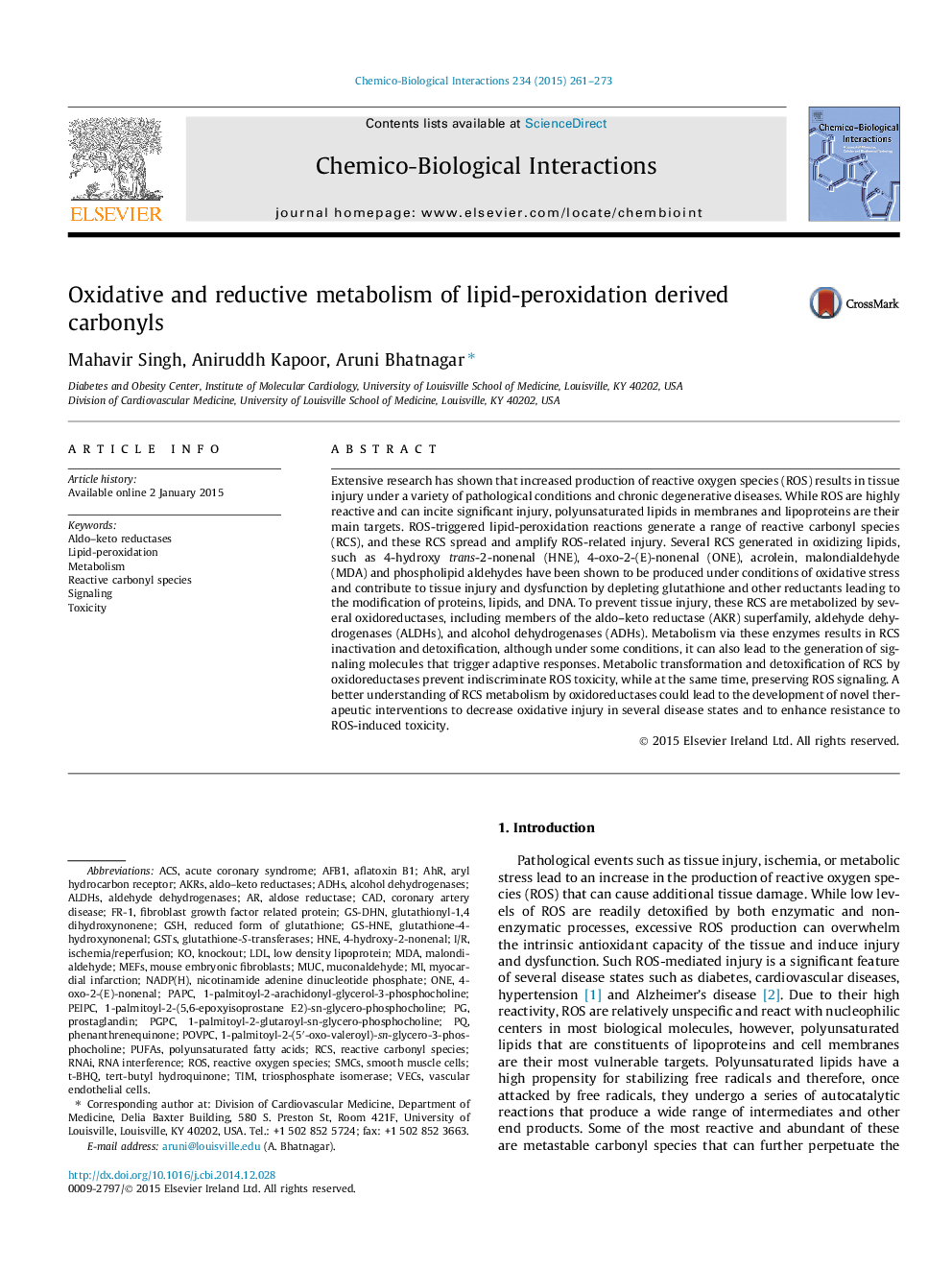| کد مقاله | کد نشریه | سال انتشار | مقاله انگلیسی | نسخه تمام متن |
|---|---|---|---|---|
| 2580245 | 1561607 | 2015 | 13 صفحه PDF | دانلود رایگان |
• Overview of major RCS produced during lipid peroxidation and their salient features.
• RCS amplify ROS related injury in many diseases during excessive oxidative stress.
• Oxidoreductases including AKRs, ALDHs and ADHs are crucial in RCS metabolism.
• RCS detoxification can prevent tissue injury while preserving their signaling role.
Extensive research has shown that increased production of reactive oxygen species (ROS) results in tissue injury under a variety of pathological conditions and chronic degenerative diseases. While ROS are highly reactive and can incite significant injury, polyunsaturated lipids in membranes and lipoproteins are their main targets. ROS-triggered lipid-peroxidation reactions generate a range of reactive carbonyl species (RCS), and these RCS spread and amplify ROS-related injury. Several RCS generated in oxidizing lipids, such as 4-hydroxy trans-2-nonenal (HNE), 4-oxo-2-(E)-nonenal (ONE), acrolein, malondialdehyde (MDA) and phospholipid aldehydes have been shown to be produced under conditions of oxidative stress and contribute to tissue injury and dysfunction by depleting glutathione and other reductants leading to the modification of proteins, lipids, and DNA. To prevent tissue injury, these RCS are metabolized by several oxidoreductases, including members of the aldo–keto reductase (AKR) superfamily, aldehyde dehydrogenases (ALDHs), and alcohol dehydrogenases (ADHs). Metabolism via these enzymes results in RCS inactivation and detoxification, although under some conditions, it can also lead to the generation of signaling molecules that trigger adaptive responses. Metabolic transformation and detoxification of RCS by oxidoreductases prevent indiscriminate ROS toxicity, while at the same time, preserving ROS signaling. A better understanding of RCS metabolism by oxidoreductases could lead to the development of novel therapeutic interventions to decrease oxidative injury in several disease states and to enhance resistance to ROS-induced toxicity.
Figure optionsDownload as PowerPoint slide
Journal: Chemico-Biological Interactions - Volume 234, 5 June 2015, Pages 261–273
